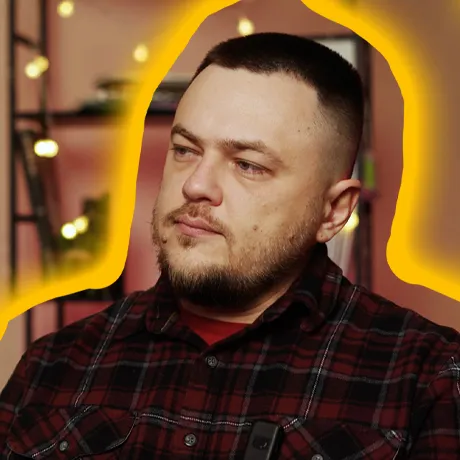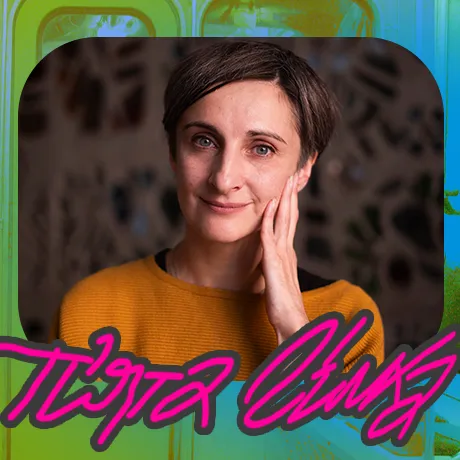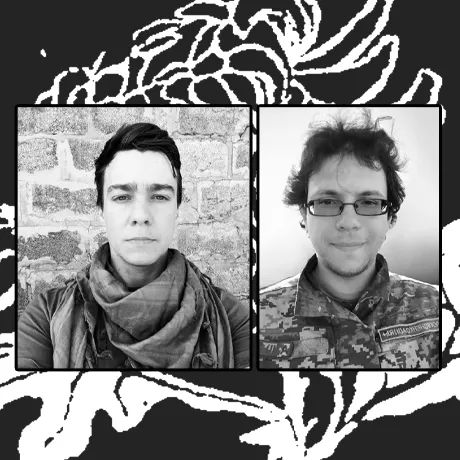
Roberta Moratto Risther: food for defenders, trident tattoo and Saltivka. Strangers Not Strangers
With the beginning of the full-scale invasion, a lot of foreigners keep coming to Kharkiv. These are volunteers, journalists, and militarians, who decided to come to Ukraine and help here first hand. They are people with interesting biographies and strong positions, but their stories are not available to everyone due to the language barrier.
Together with Hotspot School of English, we will be introducing you to these people and their stories. The first heroine is Roberta Moratto Risther, a Brazilian who came from Malmo (Sweden) to help prepare food for the military and internally displaced people.
Ви також можете прочитати цей матеріал українською.
— What is your name? And introduction, please.
My name is Roberta, I’m Brazilian. Currently, I live in Sweden.
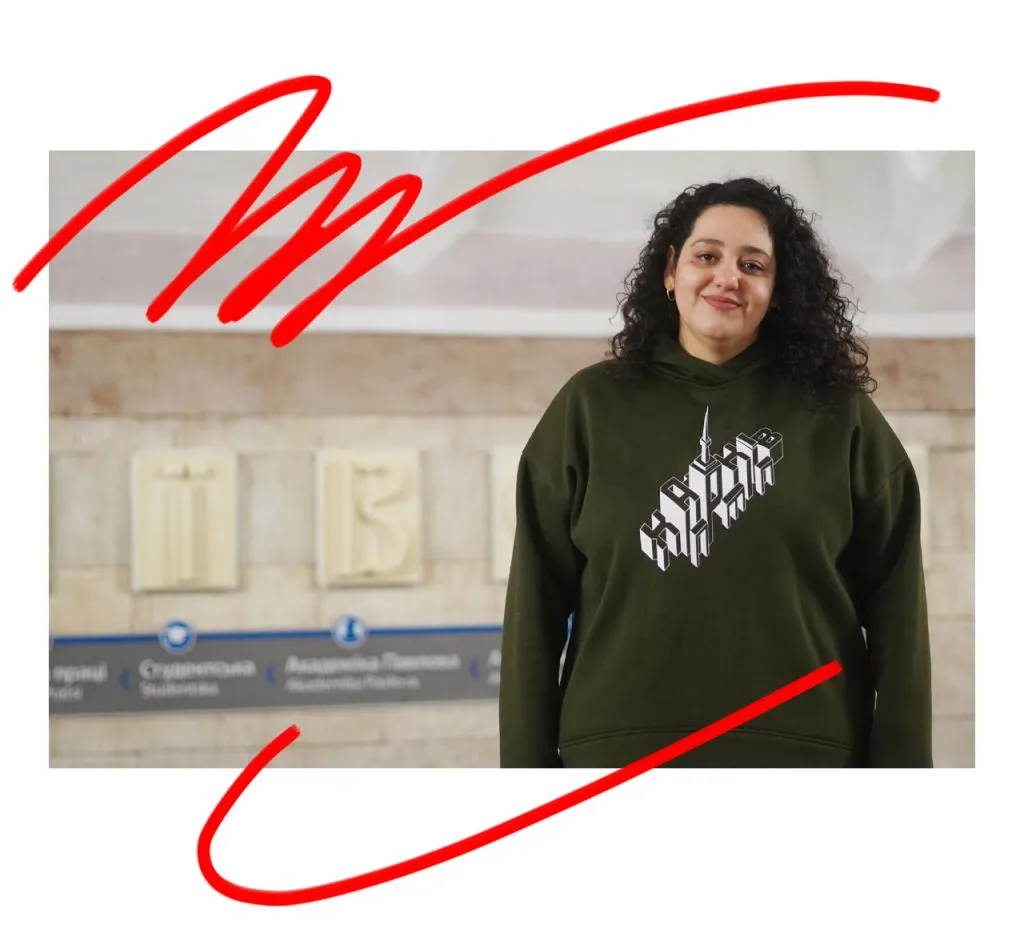
— Now it’s 2024, it’s been two years since the beginning of the full-scale invasion. Can you remember your first time thinking about coming to Ukraine?
The first time was right after the Kakhovka dam. I used to follow the news, so first I started donating to United24 then after Mariupol, I donated to Azov as well. But I didn’t know anything about any organizations in Ukraine. I was at the gym when I saw the news about Kakhovka, and saw the pictures. I just felt the rage, I knew that I needed to do something.
I wanted to join volunteers who help rescuing people, but I don’t have any military preparation, any rescue training, I just wouldn’t be useful there at all. So I just googled “volunteering in Ukraine” and started looking for projects I could help with. That’s how I went to Odesa for the first time in July 2023.
— What was your motivation? How did you manage to find the courage to go to the country that is currently in the war?
Ukrainians are so inspiring! I just fell in love with Ukrainians, with how you fight. I remember the memes like “Please, stop shooting the drones, we HAVE air defense”.
Or I saw pictures of protests with little children, and old people. Just seeing you guys fight was so inspiring, and so strong, I wanted to be a part of it.
— Has your motivation changed since the first time you’ve been here? I know you did several types of volunteering here in many different locations.
Not changed, but matured. The first time I was here I didn’t know what to expect. I was very afraid during my first air alert in Lviv. I just was looking around and questioned “Should I run for my life, or is it okay?” It was really weird, but now I know what to expect, I know when it is really dangerous. And now being here is more personal for me because I have friends here now. I know people, I know the places.
I remember Odessa was bombed right after I left. They [Russians] bombed a church, and I was in that church the week before. Now it hits very differently after I’ve been here. This place somehow feels like mine, so it is harder to see the news when I’m home and do nothing.
Sending donations from the comfort of my couch doesn’t feel like enough. I know, my volunteering is just a drop in the ocean, but at least it’s something. So I’m happy to have a drop left.
— What activity are you doing right now? Do you meet the people you help?
I’m working in the kitchen. It’s an organization that prepares meals for the military, hospitals, and other organizations that help displaced persons, and evac teams. We cook around 1000-1500 meals a day every day: soup, main course (something with meat, buckwheat, or other cereal), and bread. I mostly make bread, because there are more foreigners, who speak English.
I went to a delivery once, to a small village south of Kharkiv and it was my first time seeing these people and places that were not home and work. The people there were amazing. I was very emotional when I saw them.
In the kitchen, I met only the drivers who were picking up the food. It was such an honor to do something for them, for the military. I always joke about joining the military, but I think about it sometimes. I wish I could fight.
Sometimes we do some treats like cheesecakes and cookies, and this is just a small gesture of love to give them because what they are doing is amazing, it’s heroic. It was impressive to talk to them. Of course, they didn’t tell me any stories, with specific details — I mean, I’m a foreigner and a civilian.
— Speaking about the language — do you feel the language barrier?
Not at all! [Joking] There is a huge language barrier. The first time I came here, I didn’t understand any Ukrainian at all, but now I can catch some phrases and jokes. People always give me an impressed look, when I laugh at their jokes.
I got a tattoo, a lighthouse with a trident on my leg, and I asked to draw a map of Ukraine as the background. The first one they printed was too small, so Crimea was behind the lighthouse. The artists were joking about printing the map in bigger size because we can’t lose Crimea. The whole conversation was in Ukrainian, but I understood and started laughing, and all the people in the studio were very confused. So, now I have Crimea on my leg, it is safe with me!
— You told me that you are also learning Swedish along with Ukrainian. Also, your native language is Portuguese, and in Ukraine, you speak mostly English. Is it difficult for you to switch between languages?
It’s funny. I can switch between Portuguese and English with no problem, but it’s harder with Swedish and Ukrainian. The other day at the kitchen, it was just me, a Swedish volunteer, who’s speaking Swedish to me, and one Ukrainian lady making the bread. And I was supposed to communicate with them in their languages. When I arrived home I simply couldn’t talk to anyone — my brain just froze. But with loads of gestures, pointing, and google translate we managed. It was fun!
The last time I went back from Ukraine, I broke my toe and needed help with my luggage in Copenhagen. So I was asking people for help in Ukrainian because I just couldn’t remember any other languages.
Ukrainian is a very-very-very difficult language. You have too many plurals and several sounds I can’t even hear properly, much less say them right. But it is a beautiful language, I love hearing it, and I hope to speak it one day.
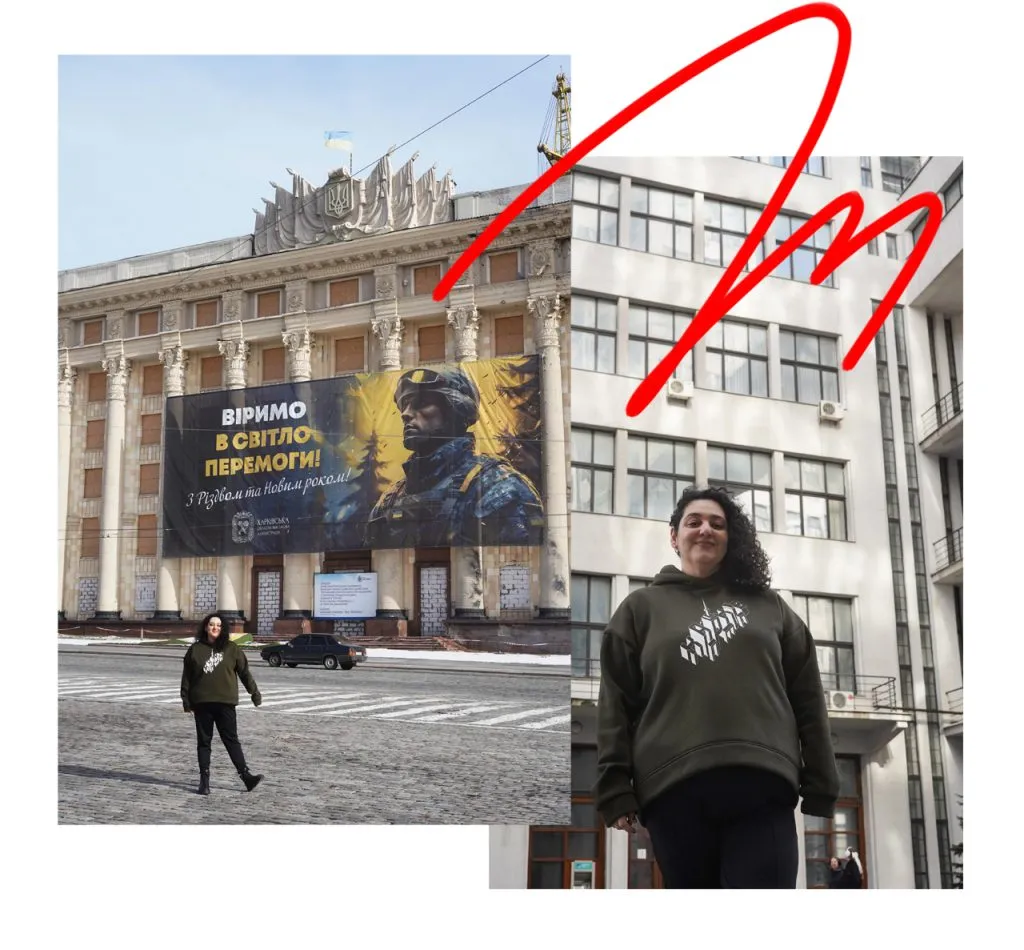
— Do you have a funny story with your Ukrainian?
A lot of them! Once, I was texting my friend and wanted to with her “sleep well” in Ukrainian. But I confused the letter «п» with the letter «p» in the word «спати». She asked me to never tell her this again. I try to downplay it saying “I want all your body functions to work well”. But after that, I never confused this letter with anything.
Also, the other day I tried to ask for something with mushrooms, but I couldn’t pronounce the «г» sound, so they brought me fish. I’m not a big fan of fish. The most recent one — I asked for a mulled wine, I wanted a cup for 400 milliliters, but accidentally ordered 4 cups. So, I had to call my friend, because I didn’t want to get drunk.
Ukrainian can be confusing sometimes, but it is also fun!
— What is the most difficult word or sound for you to pronounce?
[Shows] «Г». This is the worst sound in history! Why do you use it so often?! I can’t hear the difference between «г» and «х». It is also hard for me to make the «и» sound, and it’s everywhere. The only word I can pronounce almost right is «коли» and I don’t know why it’s the one.
— Unfortunately, we’re moving to the end of our interview, so the final block of questions will be about Kharkiv. Why did you choose this city among many others in Ukraine?
I’ve been to Odesa, Lviv, Kyiv, and the Chernihiv region. I wanted to go more East because it is a different culture and way of living, I want to know as much of Ukraine as I can. So, I wanted to see the Eastern part of Ukraine, but it had to be a big enough city, so I could communicate in English, as my Ukrainian is very bad.
Also, I’ve seen the news from Kharkiv, I’ve seen the bombing of Saltivka, the city center, so I wanted to help here, where I could be useful.
— How do you feel in Kharkiv right now?
I love it, it’s an amazing city! I’m leaving tomorrow, so I’m super sad about it. I wish I could stay longer. I hope I will be back soon, Kharkiv has such a nice vibe. I want to see it in summer, when everything is green, the lakes nearby — it must be amazing!
I will come back after Victory Day. I want to see the universities full of students, and the sun shining on these beautiful parks.
— When we agreed to this interview, I asked you about your favorite place in Kharkiv to meet there. You asked to meet at the station on the blue line in the metro. Why did you choose this place?
I like it for several reasons. First of all — it’s the place I see the most when I’m outside home and work; I’m rather working or resting all the time, so I didn’t get much time to have a favorite place in the city. And this is the line I take between those places. I like it and the stations are so beautiful!
Once when I had a day off, I stopped at every single station to walk around, take some pictures, and watch people. Even though I don’t understand what they are talking about, I like to see the interactions, the children playing, old ladies going to the market or something.
The other day I saw a military guy with a huge bouquet. I imagined that he might be going back home to see his family again. This made me smile. It’s a great place to just watch the people, and the architecture is so beautiful.
The second reason — there is no ice. I’m a Brazilian, I can’t walk on ice at all. So this is the only place I can walk instead of sliding like a penguin.
— What was the most surprising thing in Kharkiv?
Well, I did my research before coming here. I follow a bunch of accounts with pictures of Kharkiv, so I kind of knew what to expect. I’m surprised at how home I feel here though, even more than in Sweden, where I have lived for 3 years with my husband and my dog. And I’ve been here for 3 weeks.
— Do you think you could move here after the Victory?
I’m not sure. I’m married, so it will depend on how it will work both for me and my husband. But I would love to, and he knows about it. For sure, I will be visiting like crazy.
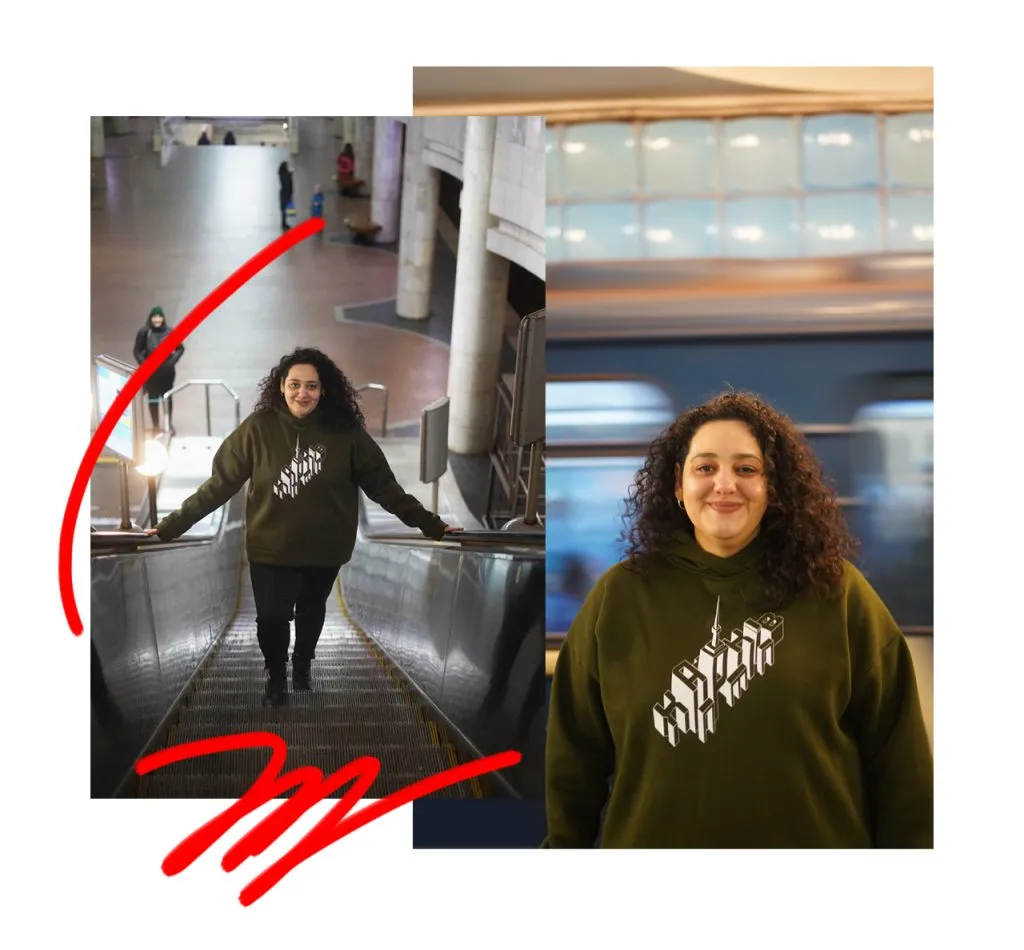
— Let’s imagine — if you had a magic wand, like Harry Potter, what would you change in Kharkiv? What spell would you use?
I guess we both know the answer [smiling]. “Avada Kedavra” for all Russians in Ukraine territories. Just go to your own country and do whatever you want.
Anything else — you Ukrainians do it on your own. For example, I noticed that you have a problem with accessibility. Carrying my suitcase was very hard because you have stairs everywhere. I have two working legs, and no disabilities, I would be fine, but now there are a lot of people with disabilities because of war. So I know, you will have to work a lot towards it. But I also know that you simply don’t have the opportunity right now. If Russians would leave you, you would solve that. So yeah, no other spell is needed here.
— What is Kharkiv for you now? How do you see Kharkiv in the future?
Kharkiv is a very warm place with very warm people, despite this cold February weather. It’s a place where everyone was so nice to me, even if there was any miscommunication, it all was with such kindness. If people didn’t understand me, they would try their best, and go out of their way just to make sure I was understood. I felt seen, and it was amazing. It’s such a heroic city to me.
Once I was walking around, and I ended up in a very destroyed part of Saltivka. I had to stop and take a breath. There was a playground, and all the houses around were destroyed. But there were a bunch of kids normally playing, laughing and joking. Their moms were near talking. And everything around was destroyed. It is so strange — you live there, go to work, do what you need to do, and continue living your life. This will, this strength — this is Ukraine for me.
And in the future I see you building your city, developing it. I imagine students back here and you know, Kharkiv has such a nice vibe for parties, so I imagine there will be a lot of them everywhere. I hope to come to see it. I will come back.
Hotspot is a result-oriented school of English. They develop sustainable and conscious skills in these three aspects: grammar (to avoid nonsense in writing or speaking), speaking (to use words and rules correctly and appropriately) and listening (to understand people around and to be understood).
Hotspot’s big idea is to teach people how to study. Hotspot doesn’t just teach the language, but also helps people to love learning, which in the result might improve the standard of living in our city and country.
Arysia Chernobai, photos — Yurii Kapliuchenko, cover photo — Katya Drozd, editing and amends — Oleksandra Ponomarenko

